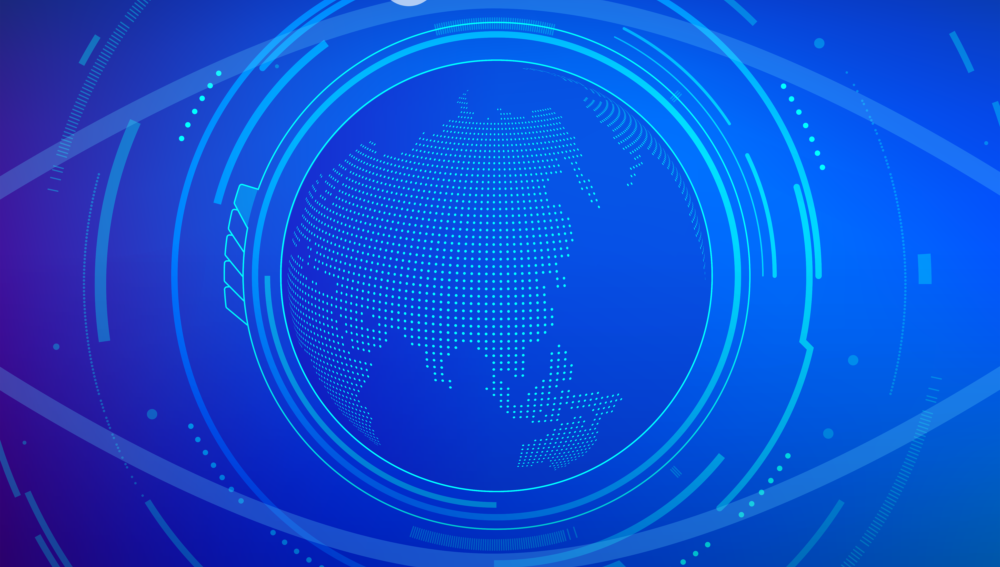Or listen in your favorite podcast app
Apple Podcasts / Google Podcasts / Spotify
In the last few months, we have seen quite a shift in our world. Our day-to-day lives are vastly different, and the way many of us live and work has changed. Companies around the globe are adjusting to this new normal and trying to navigate how to not only manage their workforces and provide the necessary technology and productivity tools but, more importantly, how to ensure their employees’ wellbeing. On this special episode of IT Visionaries, we brought in two tech leaders, Julie Cullivan, the Chief People, and Technology Officer at ForeScout Technologies, and Sarah Franklin, the EVP & GM Platform, Trailhead & Developers at Salesforce, to discuss how they are navigating through these unprecedented times. Things are hard, there’s no doubt about it, but as both women say, when you put the human element first, have empathy for others, and keep a positive attitude, we can all make it through this together.
Key Takeaways:
- The human element and how people are managing on a human level must always come first
- New work environments pose unique challenges, from how to provide productivity tools to how to encourage employees to maintain a separation between work and home
- When we get through this, we will be living in a new normal, and it might actually include changes for the better
How Salesforce and ForeScout are dealing with a crisis
When times are challenging, both Julie and Sarah agree that the first thing you have to do is make sure your employees are healthy and safe. Second to that is checking in on customers, and doing all you are able to do to help the community around you. In terms of connecting with customers, when you can, it’s beneficial to do as much personalized communication as possible. There are real-life impacts to such a drastic change in your work environment, and it’s about more than just work productivity. People will be dealing with things like a new work-life balance and social isolation and, as a leader, you need to be empathetic to those new realities. And, giving back to the community is our responsibility.
“I’m having to put a lot of energy right now into making sure that we’re looking at the people side of suddenly working remote and being isolated in some cases. You have to be thinking about the mental health of employees as they go through this transition. And admittedly, it hasn’t been a long period of time, but none of us are exactly sure how long this is going to go on and how do we make sure that we’re taking care of our employees beyond just providing them the productivity tools that they need in order to be able to do their work.” –Julie
“You go to the human side first and you want to think, ‘How can I help everybody? How can I make sure everyone’s safe?’ And then you go into some solutioning — what can our technology do to help people?” –Sarah
How people react to new working environments
As work shifts to the home as people are forced to work remotely, Julie says that some people are now having a hard time disconnecting. Before this, most people had normal transitions in their life and natural separation between being at home and being in an office. Now, people need to come up with a plan for how to manage that shift from a mental perspective. Again, from a leadership point of view, the women say that you have to have empathy for everyone’s situation. Some people may need to take more frequent breaks because of childcare needs, some may need to adjust their hours. Those situations need to be taken into account and you have to support the needs of your employees.
In addition, you need to think creatively about how to stay connected in social ways. Whether that’s a virtual water cooler, video jam sessions, or a streaming movie party, people need outlets and you can help provide those.
Through it all, though, you have to remember to be transparent about everything you know and everything you don’t. Transparency builds trust and so when you’re being honest about the uncertainty, people will trust you more.
“Yes, there’s a lot of disruption but we have to be empathetic toward each other and change our schedules and make a plan. I think the most important thing is to make a plan and put yourself on that plan because you have to take care of yourself – this is hard.” –Sarah
“It’s getting people to open up about what their concerns are, and giving them a chance to breathe. It’s helping them realize that whatever you need to do, come up with a plan and then we’ll work together on making that plan work as opposed to assuming that you don’t have that support or that you don’t feel like you can ask for that kind of help.” –Julie
“In these times, leadership has never been more important. People want you and your leadership to be authentic and vulnerable and real. And when you have any uncertain information, it’s important that you are transparent about that because transparency breeds trust and that’s what people need right now. They need to know that they can trust you. They can trust that you will tell them the truth and trust you to keep them safe, and that you can trust them, too.” –Sarah
Looking at the relationship with customers and vendors
As Julie says, relationships shouldn’t change as long as you already have the right relationships built. The worst time to reach out is when you’re in the middle of a crisis, so when you are talking to customers, you want to just reinforce that you are there for them. There is a light at the end of the tunnel, and customers still expect their services and products to work, so you have to maintain all those systems and keep pace on the projects you were working on as best as you can. This will instill confidence in your customers and strengthen the relationship when the tough situation ends.
“I’m an optimist and I know that we’re going to come through this thing. And so it’s really important that we’re thinking about how we’ve got to keep pace on the projects and the initiatives and the work that we’re trying to get done. As we’re engaged with our suppliers and partners, we’re making sure that we’re saying, ‘Hey look, these are the commitments that we’ve made and this is the project and the timeline that we’re on.” –Julie
Adjusting to the “new normal”
When the tough situation passes, everyone will emerge into a world where there is a new normal. We don’t yet know what that looks like, but it could be a world where there is less airplane travel, more opportunities to be fully or partially remote, and a renewed sense of optimism and innovation around creative problem-solving.
“I think it’s going to be very interesting from a human perspective to see where we end up, which is very maybe a more authentic place. I’m very fascinated by this and maybe there’s some good that can come out of that.” —Sarah



